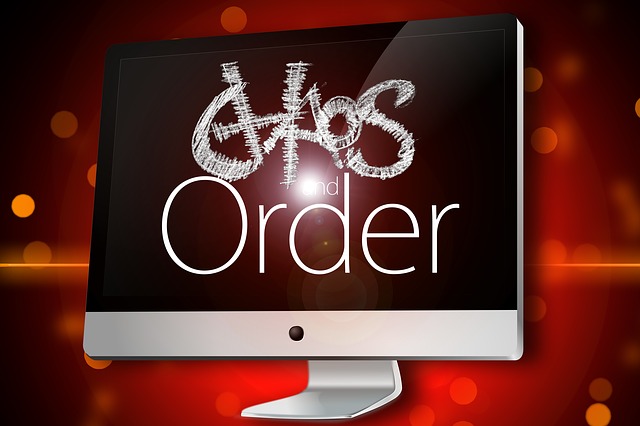Language is more than just a tool for communication—it’s a map of the mind, a reflection of our deepest beliefs, values, and worldviews. Every word we choose carries a weight of meaning, not just in what is said but in what it reveals about the person saying it. Without realizing it, people constantly “tell on themselves” through their vocabulary, leaving trails of insight into their personality, emotions, and perspective on life. The more closely we listen, the more we see the unseen.
The Words We Choose, The Lens We See Through
Imagine two people describing the same rainy day. One says, “The sky is weeping.” The other shrugs and says, “It’s just weather.” The first person is poetic, emotional, and perhaps someone who finds meaning in nature. The second is factual, detached, and possibly pragmatic. Neither of them explicitly states their worldview, but their language does.
Now, think about how people talk about work. One person might say, “I have to grind all week,” while another says, “I’m building my dream.” One sees work as struggle, obligation, and endurance. The other sees purpose, excitement, and creation. The words reveal more than just attitudes—they expose fundamental beliefs about life itself.
Even simple phrases like “I get to” versus “I have to” reveal how someone engages with life. The former implies gratitude, the latter, burden. A person who frequently uses passive phrases like “It just happened” or “There was no other choice” might struggle with personal agency, while someone who says, “I decided to” or “I made it happen” likely views themselves as an active force in their own story.
What People Reveal Without Meaning To
We don’t just choose words; our words choose us. Our internal world shapes our language, and in turn, our language reveals that internal world to others—often without our awareness.
Consider someone who frequently uses war metaphors: “I’m battling through this project,” “She’s on my side,” “We have to attack the problem.” This suggests a mindset where life is a competition, a fight, or a struggle. They may see the world in terms of allies and enemies, wins and losses.
Contrast that with someone who naturally uses journey-based language: “I’m working through this,” “We’re on the same path,” “This is a stepping stone.” Their view of life is about progress, growth, and movement, rather than conflict.
Pay attention to how people describe relationships. Someone who often says, “I was forced to,” “I had to,” or “I had no choice” might feel disempowered or trapped, even if they don’t explicitly say so. Meanwhile, a person who uses language like “I chose to,” “I decided,” or “I wanted to” likely has a stronger sense of autonomy.
Even the way someone apologizes tells a story. Compare:
- “I’m sorry you feel that way.” (Deflecting responsibility)
- “I’m sorry for what I did.” (Owning responsibility)
- “I didn’t mean to upset you.” (Centering their intent rather than the impact)
- “I see how that hurt you, and I regret it.” (Acknowledging both cause and effect)
These subtle shifts in language expose whether a person is more concerned with protecting their image, avoiding discomfort, or genuinely repairing trust.
How to Listen for What’s Hidden
Learning to hear beyond the surface of words is an incredible skill—one that can help you understand people more deeply and even decode yourself.
Start by paying attention to patterns. What kind of metaphors do people use when they talk about challenges—do they frame them as fights, obstacles, journeys, or puzzles? How do they describe themselves—are they “stuck,” “pushing forward,” or “trying to figure it out”?
Notice recurring emotional words. Someone who frequently says “annoying,” “stupid,” or “pointless” might see the world through a lens of frustration and cynicism. Someone who often says “exciting,” “curious,” or “grateful” is likely approaching life with more openness.
Listen for extremes. People who constantly use absolutes like “always,” “never,” “everyone,” and “no one” might have a rigid, all-or-nothing perspective, whereas those who say “sometimes,” “maybe,” or “it depends” tend to see nuance.
And, perhaps most importantly, observe what is left unsaid. The avoidance of certain words can be just as revealing as their presence. Someone who never acknowledges emotions directly, for instance, but instead says things like “It is what it is” or “I’m fine,” may have difficulty processing feelings. Meanwhile, a person who never claims credit for their achievements but instead attributes them to luck might struggle with self-worth.
The Power of Vocabulary—Shaping Reality
Language doesn’t just reveal our worldview; it shapes it. The words we habitually use reinforce the way we see ourselves and the world. This means that changing our vocabulary, even slightly, can shift our mindset.
For example, replacing “I can’t” with “I haven’t yet” changes impossibility into potential. Switching from “I have to” to “I get to” reframes obligation into privilege. Saying “I’m learning” instead of “I’m bad at this” transforms self-criticism into growth.
Consider a person who frequently describes themselves as “broken.” That language solidifies a belief that something is permanently wrong with them. If instead, they started using “healing” or “growing,” their mind would begin to accept the possibility of change.
Even something as small as rewording problems as challenges (“I’m facing a challenge” vs. “I’m dealing with a problem”) can make a difference in how we approach difficulties.
Final Thoughts
The words we choose are never random. They are breadcrumbs leading back to our inner world, quietly exposing our fears, desires, and deeply held beliefs. And while most people are unaware of what their vocabulary reveals, those who listen carefully can learn to see beyond the surface.
The next time you find yourself in conversation, pay attention—not just to what is said, but to what is being revealed beneath the words. You might be surprised by what you hear.
And if you really want to change your life, start with the language you use about yourself. Because the words we speak don’t just describe our world—they create it.













